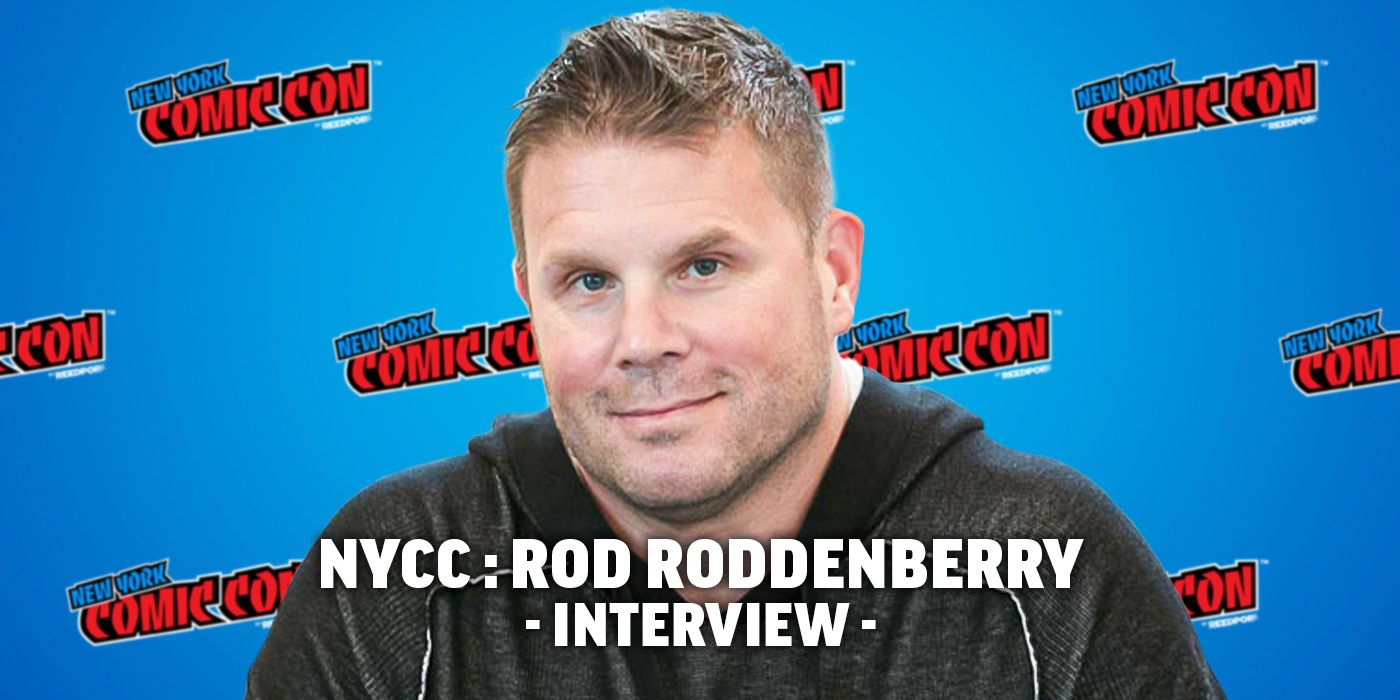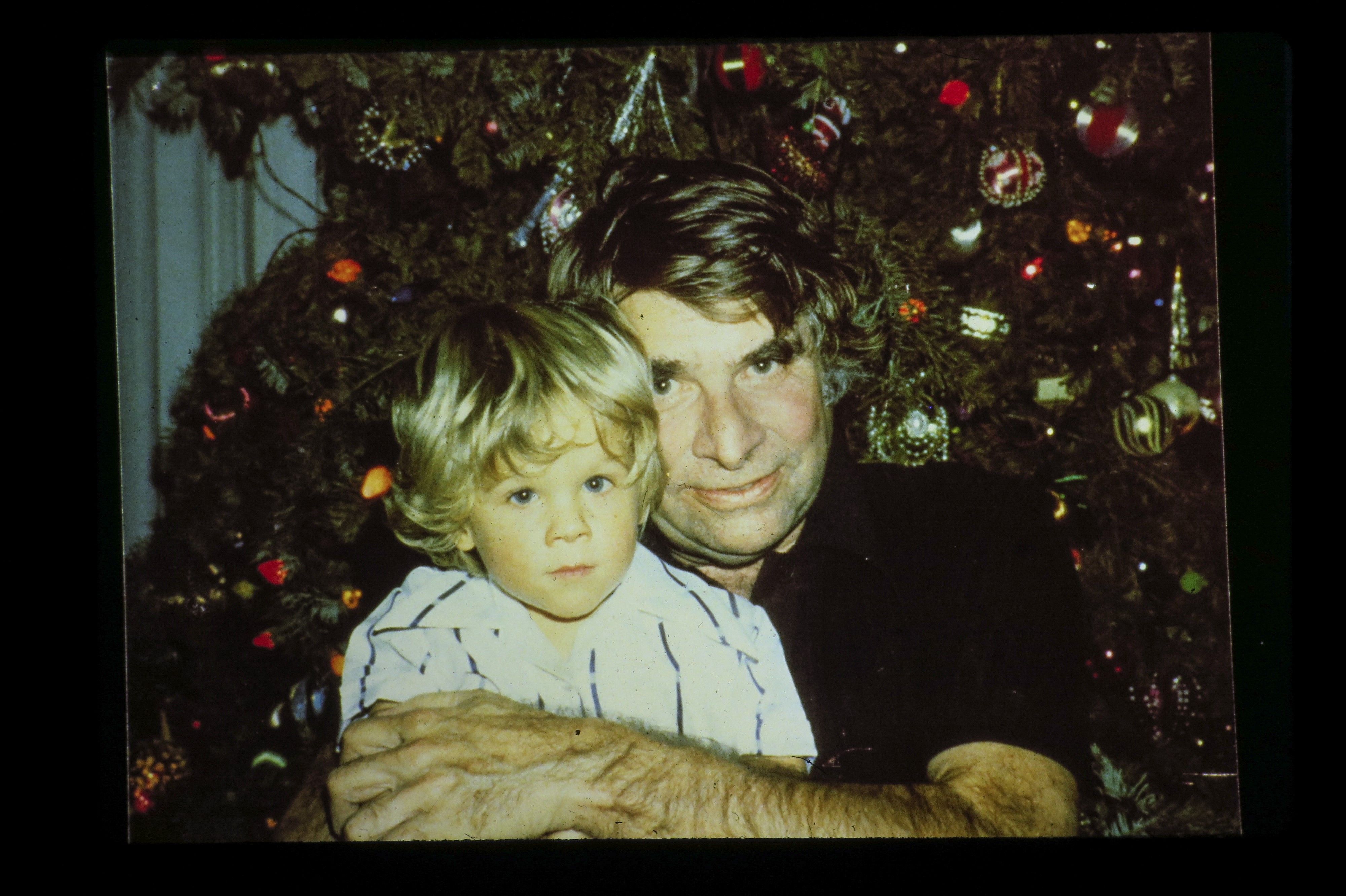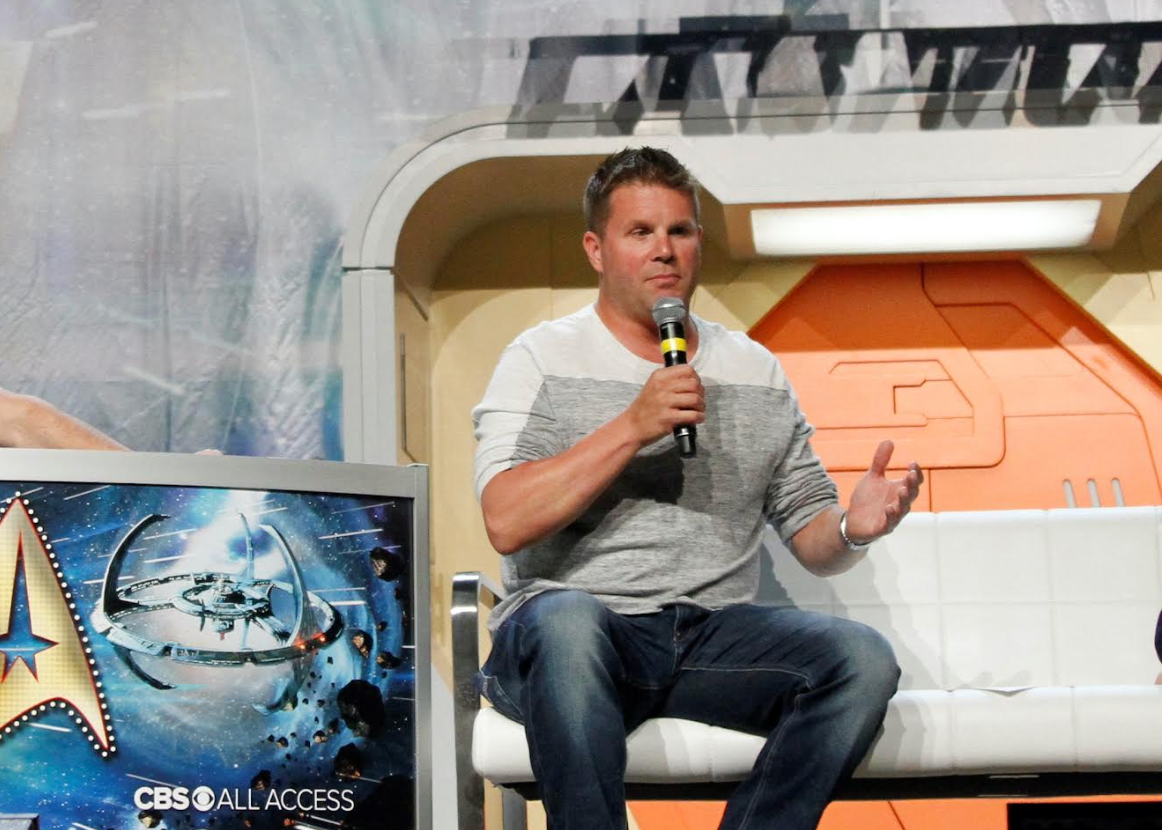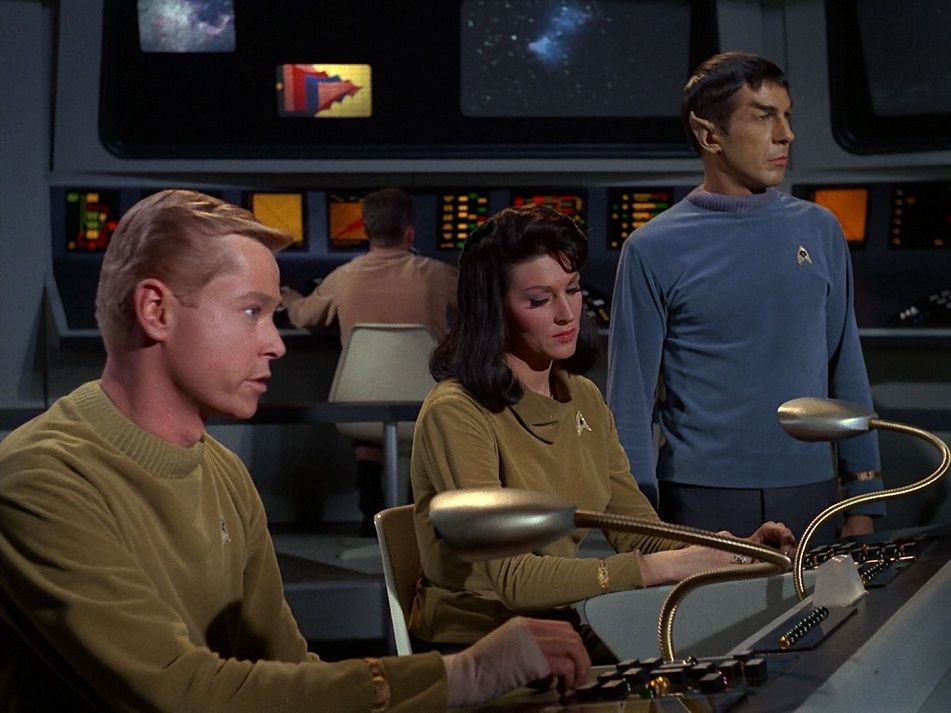Before Paramount+ beamed down the incredible casts of Star Trek: Picard, Star Trek: Discovery, and Star Trek: Prodigy at New York Comic Con, Collider caught up with Rod Roddenberry to discuss his father, Gene Roddenberry, the Roddenberry Archive, and the technology of Star Trek, and to push back at William Shatner's comments about the new era of the franchise.
Gene Roddenberry was the creator and architect behind the expansive Star Trek franchise and following his death in 1991 his son Rod became the chief executive officer of Roddenberry Entertainment in 2001, where he oversees the creation of television series, movies, books, and comics, still today. In 2016, he became more active in the creation of new Star Trek projects when he signed on as an executive producer on Star Trek: Discovery, in addition to all of the other Star Trek series on air today.
During Collider's 1-on-1 interview with Roddenberry, he spoke about how the Infinite Diversity in Infinite Combinations (IDIC) philosophy is the backbone of Star Trek, what it was like to digitally recreate parts of the Roddenberry Archive, how his father met with Caltech scientists to develop so much of the technology seen in the series, and how the franchise is continuing to develop as it boldly moves forward.
Collider: For my first question, I wanted to know do you feel like a gatekeeper for your father's legacy, or more like you're giving back to the fans still?
ROD RODDENBERRY: Truthfully, well, when I was younger, there was maybe a little weight on my shoulders in terms of — and this is all self-imposed — because I truly became proud of my father's legacy and the Star Trek philosophy because I agree with it. And I've really just made it my own. Now, I'm not taking credit for necessarily those ideas and philosophies, but every one that I've heard of, I certainly love I mean, IDIC philosophy is the backbone of Star Trek and I genuinely believe in that. It is hard to do it. I can stand here and tell you it's the right thing to do to appreciate everything that's different. It is a tough thing to do. But I love that idea. And I believe that is truthfully, the only way we as a species are going to move forward. I mean Star Trek’s a TV show. It's intelligent at times, and it can inspire people and often does. But that's just one piece of it. It's just the ideology that I truly love and want to carry on. I mean, in my own way, yes. So I don't know if that answers it, but it's never a burden. I absolutely love it.
When I was working on my questions I was thinking about how we talk so much about your father's legacy, but this is becoming your own legacy as well. What do you want your legacy with Star Trek to be?
RODDENBERRY: Yeah, it's a great question. To be honest, I don't want to be the guy who screwed it up. I just want to carry it on. If you want to use the word legacy, I think I want my legacy to be "Rod Roddenberry carried it on." Because it's everyone's legacy, right? I mean, the fans embody a lot of Star Trek and everyone who's writing for the show when creating the shows. They are they're carrying it on as well.
Something I really love about Star Trek right now and as it's moving forward is that fans are finally really getting to see themselves reflected back from the show. Why do you think that's so important for fans to see themselves in Star Trek?
RODDENBERRY: What a great question. You know, Star Trek always appealed to, I think back in the old days, 30 40 50 years ago, Star Trek spoke to the disenfranchised. But back then, there were the stereotypes of the nerds and the jocks and the geeks and all that sort of stuff. What has happened over the years is that we've all realized that we're all sort of geeks in one way. If you ride a Harley and wear chaps that you're dressing in a costume, you're a geek for Harleys. If you paint your face at a football game, you're a geek for football. We're all geeks. It's sort of come full circle where Star Trek I think is embracing the diversity of everyone on the planet, and the uniqueness between them. Fans are incredibly unique. And that's okay. Star Trek is saying it's okay to be who you are. I love that.
Yeah, it's a good ethos. I know a few weeks ago, I guess at San Diego Comic-Con, William Shatner had these comments about like, oh, Gene Roddenberry wouldn’t like the new Trek, and I was so taken aback by that, because new Trek and all of this era, it feels so much like the Trek that I grew up with, like I always felt like Star Trek stood for diversity, inclusion, and progress. So how do you respond to comments like that?
RODDENBERRY: You know, I'm torn between saying something because he loves the press, and people will love these comments. “Well, Roddenberry said this, Shatner said this,” or whatever. I don't care what he says. I kind of understand a little bit of it. It is a different kind of structure. Some of these new structures are a bit darker, are kind of based in the grittiness of reality and at certain times that doesn't appeal to me. But as long as we've got the shows out there that are talking about a better future and why we should embrace diversity and work together and discover and create, then I think it's Star Trek. I really do. If Star Trek is giving you a unique point of view o something you haven't considered before, if you're thinking just a little bit, then it's good Star Trek.
You said “discover,” which made me think of Discovery, and Strange New Worlds, which I feel like is finally starting to shed some of that like 1960s aesthetic, it's starting to move forward with Trek. Can you talk a little bit about how Star Trek is navigating forward now that we are so much further removed from the 1960s and that kind of production style?
RODDENBERRY: That's a great question. I'm not sure I can even speak to that, to be honest. You know, they've got these five shows up that are so different right now, and have a different kind of audience. You can love one, and maybe not like another, or you can love them all. But they are so unique and different, and they speak to a different audience. I think that's what's important. You know, if all five shows were kind of the same, it'd be kind of boring, arguably. But I gotta say Alex Kurtzman and every team on every show, they truly love what they do, and they get Star Trek. I mean, I think that is a little bit of a distinction. I don't want to say people didn't love Star Trek back then in the 80s, 90s. But I think it was a little bit more of a business. Don't get me wrong. It's still a franchise. It's still a business. But the people that you are getting to work on these shows care about what they're doing, and they get it. And they get the philosophy too. They want it to speak to the fans. So that doesn't really answer your question.
It does, kind of.
RODDENBERRY: I don't know. That's why I think the shows are so unique right now.
Obviously, Star Trek has a huge franchise, as you mentioned. At least twice a year, I think about Earth: Final Conflict. It was one of my favorite shows. I honestly talk about it all the time with my friends. Like “why didn't you watch it was so good.” Do you ever think there's a place for that to come back? A revival, a reboot, or revisiting that universe?
RODDENBERRY: I know my business partner Trevor Roth is often looking at some of the older productions and things out there, and Earth: Final Conflict is certainly on the list. But how to bring it back and update it, but not change it. It's all that. I don't know if it will, but I think it had a great concept. I do. Yeah, I miss those days.
And then you also have the Roddenberry Archive. What was it like revisiting “The Cage,” and revisiting archival footage, and talking to those that we're working on that?
RODDENBERRY: Well, so there's also a team at OTOY, one of my best friends Julian Urbach, who's also spearheading that. What we sort of did was, I feel like it's been over 10 years now, is just finding all of these documents, whether they're call sheets, or memos, or other stuff, and finding this gold. It's just amazing to look back and see what was happening sort of behind the scenes. And so we've been scanning that into an archive. And then roughly two years ago, Jules kind of came on board and said, “Hey, we can archive everything. And if it doesn't exist, we can recreate it.” It's crazy to see, like the bridge of the enterprise in VR, and in a lifelike way. And he's made the motion picture ship, 1:1 scale, virtually, and every aspect of it and parts where they didn't know. Because when a scene is shot, you don't know where the camera was. If that was real. What room is that? They've gone in, and they've talked to Mike and Denise Okuda, and they've talked to people who've worked on the shows, and they've been able to sort of figure out what was there, and they built it. And you're going to be able to walk through the Enterprise, every deck of every ship. They're doing all the ships now. So it's incredible because it's still virtual, but that's the way we're going to be able to archive everything.
Speaking to VR, during the pandemic, I got into using the Oculus and playing the Star Trek video game which is incredible, and it made me think about all the technology that your dad came up with and kind of brought into reality. What's it been like to see so many technological advances that he imagined for Star Trek become reality?
RODDENBERRY: Well, not to take any credit away from my father, but my father read everything. And then he knew people at Caltech and JPL. The book by Stephen Whitfield called The Making of Star Trek talks about this, and it talks about his correspondence to some of these guys. This is a terrible example, but I can't remember if this is in the book, but I think he talked to someone about getting some sort of non-lethal weapon. They said, “Well, we do have lasers right now, but we are working on a phasing laser,” and that's sort of like what the phaser came from. So all of these great ideas were just extrapolated from existing [things]. You know, “we have this, what is it going to look like 300 years,” and he'd have scientists kind of explain it to him. And that's why we see it today because they were right.
We're at New York Comic Con and there are a lot of fans here. Have you ever had a fan experience that like stood out, something that really was profound? That was just like seeing the impact of Trek on the fans?
RODDENBERRY: We did a documentary called Trek Nation that came out in 2012. ‘11, ‘12, something like that. And the reason we did that was because I've had fans come up to me my entire life with incredibly powerful stories, whether they're in an abusive relationship, or they were always told as a kid that could never become anything. Star Trek inspired them. You know, so I've met people who became doctors because McCoy made them believe in becoming a doctor. And of course, you know, Michelle's story, not to overlook that, but I mean there are people who have had horrific experiences in their life. But a character or a story in Star Trek gave them hope for the future and inspired them so much so that they became something better than people ever thought they could, or they even thought they could.
Check out the teaser for Star Trek: Discovery Season 5 below:




